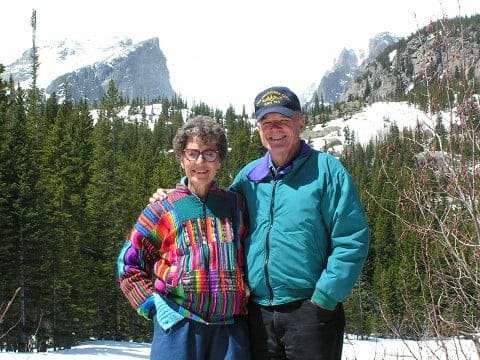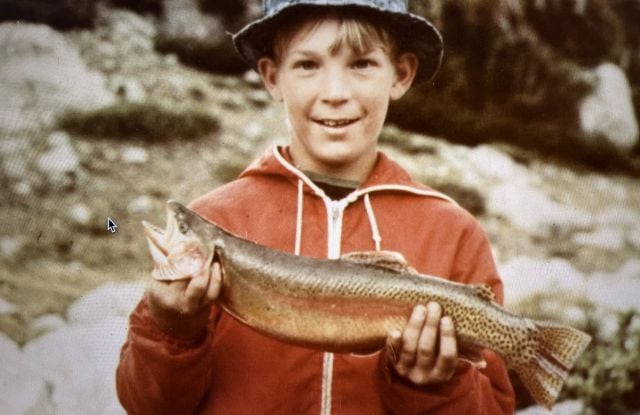Planning for Inheritance: Lessons I’ve Learned


My parents were excellent stewards. When my dad was 61, he decided that he would rather work as a medical missionary caring for the poor in Kenya and Viet Nam as opposed to piling up assets in his 401k. Every year thereafter, my parents spent multiple months in the field. They lived out their commitment to the poor and grew their commitment to missions. Their example was inspiring to many.
As they grew older, my parents were very intentional in the way they sought to pass that stewardship on to their four kids. My dad would sit us kids down and explain what he was doing and why he was doing it. There were some things about my dad that made him complicated, but he did a fantastic job of being intentional in handing off his values and other assets to us kids.
My dad died six years ago, just before Covid broke out. And while my mom is still alive at almost 91, she suffers from an advanced case of dementia. So as the oldest of the four kids, I’ve had a front row seat to their process. This process of transferring what they value to others was their final act of worship – it was often messy, but the fruit has been good.
My parents cared more about the intangible assets they stewarded – their values – than they cared about their tangible assets. They could have spent more on themselves, but they lived simply. They cared about family – every year they covered the costs of a family reunion. They cared about faith – weekly taking us to church and youth group. They cared about missions and were generous lifelong supporters of many missionaries.
Most people have an instinct to share the things they value with others before they die. That’s the process we know as “inheritance.” But we tend to think of the process of inheritance as a thing that takes place through our written will after we pass. What my parents showed me is that inheritance is a process that needs to take place while you’re still alive. Values are best transmitted over time with lots of conversation.
As I’ve reflected back over my parents’ process of inheritance, I see that they engaged in three important steps while they were still alive and able to communicate their values:
1. Stewardship
My parents saved more than they spent. They poured into other people. Both of them regularly had interns who they imparted wisdom and capacity to. My dad did this in the medical realm. There are still pathologist disciples of his in Viet Nam and Kenya who practice medicine the way he taught them to practice.
My mom, similarly, made disciples in those countries or wherever she happened to be. Even now, in an advanced stage of dementia at a memory care facility, she leads others with her attitude of thankfulness and positivity.
My parents lived as stewards, knowing that the people and other resources they stewarded were just under their care for a brief time.
2. Identifying Responsible Inheritors
My parents applied the principle we see in 2 Timothy 2:2 where Paul asks Timothy to pour into “responsible people” so that they would then pour into others. My dad didn’t just look at slides at the Kijabe Hospital, he taught other Kenyan doctors how to do that so that they could one day take his place diagnosing disease. He was discriminating in looking for those who would inherit his responsibility. He knew it was his job to equip them with the skills they would need.
Similarly, my mom did that as she discipled women wherever she was. I still hear from her disciples about how they are endeavoring to be stewards in discipling others the way that my mom taught them to be stewards.
3. Handing off Responsibility
It has taken me so long to really begin to understand this third phase of inheritance. I grew up looking at society’s paradigm of transferring assets, but not values – committing their intention only after a person had passed through their written will. What I saw with my parents was 19 years of going to Kenya, and over 20 trips to Viet Nam, all of them self-funded.
Relationships required time. They were built through so many conversations and projects. My parents were able to verify that those they were handing stewardship responsibility to were doing a good job. As a consequence, you can go to Hue, Viet Nam, or Kijabe, Kenya and you will see people who look like my parents. Their skin color may be different, but they put 1 Cor. 11:1 into practice where Paul says, “Follow my example, as I follow the example of Christ.”
What I’m Doing
So, I’ve been fortunate to be able to learn from my parents. And I’m fortunate that God made me a learner. I’ve studied their process to see what worked and what didn’t work. I’m fortunate that my mom raised me to be a disciple-maker. My style is different from hers, but I watched how she poured into people over time.
I’m also blessed that God has given me lots of opportunities to make mistakes and learn from them. If you do a Google search of me, you may see I made some doosies along the way. I’ve picked the wrong people multiple times. I’ve done it too quickly. I’ve tried to take short cuts. I confused humility and authority. I failed to be patient and take the long view.
But invite you to check out fruit as well. You can look at our five kids, and you’ll see that they are not confused about who they are or what God has asked of them. You’ll see them parenting their kids well. You can also look at some of the people I’ve sought to pour into over the long-term. I like the fruit they’ve been producing.
Inheritance has been a surprising process. It’s one I’m still learning about.
Comments (7)
Leave a Reply Cancel reply
More Posts
![]()



Hey Seth I think perhaps you have a typo. It says, “you’ll see that they are confused about who they are”. Did you mean “aren’t confused”?
Good catch, Brant. I caught that right after I published and I fixed it, but you and a few others already saw it. Thanks for being one of those I’ve been able to come alongside. You have been such a good steward of all that I passed on to you. I am so thankful for you.
Thanks very much you really touchedy heart
Those of us who had the privilege of walking a-bit alongside of your parents whether in Asia or Africa or somewhere in between are indebted to them and the entire Barnes family. Together you are advancing the work and ministries they believed in so deeply. Thank you.
Love this, I call it Kingdom Succession!
My morning Devo.. Inheritance… what a subject to take on… Although our time together through the years has been “spotty”, it always IS a blessing to talk, laugh, and pray together. I knew you must have had great parents!! their greatness continues and WILL continue.!!
“second wind”.. hmmm
Love you Seth
Joseph
Thanks for the encouragement, Joseph. I’m not done – there’s a second wind coming to this old body! Thanks for inspiring me with your resilience and spirit!